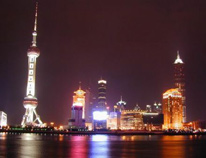A Decade of Change: China's growing economy

 0 Comment(s)
0 Comment(s) Print
Print E-mail CNTV, September 24, 2012
E-mail CNTV, September 24, 2012
In the run-up to the 18th National Congress of the Chinese Communist Party, we will bring you a series of 48 special reports called "A Decade of Change". The reports cover a wide range of tranformations and reforms in many aspects of society.
First the economy. One of the biggest changes in the past decade has been China's emergence as a global economic power. In the face of a global financial crisis, China is making efforts to sustain its economic momentum and become a responsible player in world economic affairs.
From 2002 to 2011, China's GDP grew at an average annual rate of 10.7%, and moved up from the sixth biggest economy to the second place in the world. In the same period, per capita GDP jumped from 1,000-plus U.S. dollars to 5,432 U.S. dollars.
Dr. Zhu Haibin worked as a senior economist for the Bank for International Settlements for 10 years and came back to China last year to head the China Economic Research team at JP Morgan.
He says, "It's probably the biggest event in the global economy in the past few years, that China has surpassed Japan to become the second biggest economy. The market widely expected that in 10 or 15 years, that China will also surpass US to become the biggest economy in the world."
But recently, the global economic woes have challenged China's growth and its outlook. The country's GDP expanded at its slowest pace in more than three years in the second quarter, growing 7.6% on an annual basis as demand at home and abroad plummeted.
He also says, "Right now there are a lot of concern about China's economy, whether China will have a soft landing or hard landing. That's basically because China is now the biggest growth engine for the world economy."
Growing strength also means more responsibilities. China has stepped up its efforts for world economic recovery, and promote the common development of all countries. Paul Polman, the global CEO of consumer goods giant Unilever, says China has played a constructive role in dealing with the eurozone debt crisis.
Paul Polman, CEO of Unilever, says, "It's also in China's interest that Europe does well. That's why Chinese government has also looked at some of the investment in Europe via the International Monetary Fund, and participated in Financial Stability Fund for Europe indirectly."
Analysts say the slowdown of the economy is partly the result of the government's intentional steering. China has lowered its economic growth target to 7.5 percent this year.
And has shifted its development priorities. The government aims to change the growth model to promote a more balanced and sound development for the country's economy.







Go to Forum >>0 Comment(s)